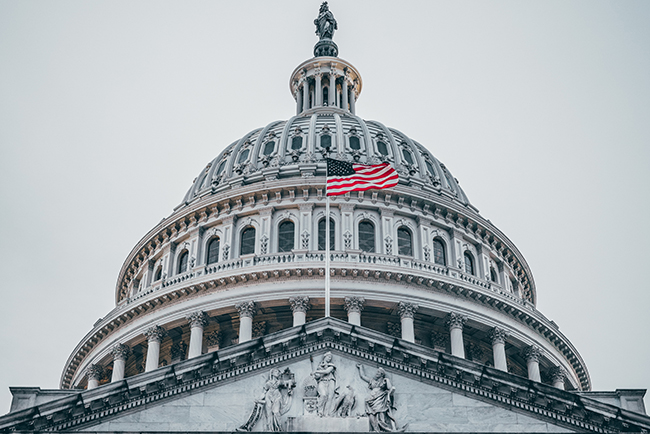In decades past, a consensus in America undergirded religious freedom—we knew what it meant, why it was important and that it was rightly understood as America’s first freedom. Now, however, we cannot assume that consensus.
Modernity, the rise of secularism, and a radical progressivist agenda beholden to the sexual and gender revolutions have undermined the fundamental commitment to religious freedom in America. We can no longer assume people understand what we mean by religious freedom, nor can we assume everyone upholds this liberty as a right worthy of protecting.
Consider, for example, the massive changes in the American political landscape from the overwhelming passage of the Religious Freedom Restoration Act of 1993 to our current cultural predicament.
Religious freedom in crisis
Not only has understanding of religious freedom devolved over the past three decades, but the commitment to defending it has seemingly evaporated in many circles. Now, many often place religious freedom in scare quotes and frequently label it as a disguise for bigotry or discrimination.
The cultural pressure today tends to replace religious freedom with the newly invented rights of the sexual revolution, with liberty of conscience and freedom of speech giving way to the demands of the LGBTQ movement. Indeed, religious freedom is now a liberty or set of liberties that can only manifest in the private confines of one’s home or church—religious convictions, apparently, have no place in the public square. Time will tell whether even our private homes will remain safe havens for religious freedom.
We find ourselves, therefore, in a cultural crisis. If religious freedom dissipates, the consequences would be catastrophic for the American experiment in ordered liberty. Given the history and legacy of believers and their advocacy for religious freedom, it is incumbent upon us to reassert the need for this first freedom, what was meant by it, and why it is crucial to the flourishing not only of the religious but all Americans.
The God of the universe in control
Given the trajectories of secularism, the shifts in rights from supernatural to natural to political, why would any of us have concluded that secular people would think religious liberty is something particularly important for a society? The erosion of binding authority, the lack of ontological order, and the eradication of human dignity rightly understood not only threaten religious freedom but every true human right codified in the U.S. Constitution. This is where we are in our present moment.
This does not mean that, contrary to Jesus’s promise to His disciples, the gates of hell will in fact prevail over His church. We know, no matter what happens in the United States or anywhere in the world, nothing will stop the God of the universe from accomplishing His purposes, protecting His church and spreading the Gospel to the ends of the earth.
Christian tradition reminds us of this humbling, sober reality. For example, Thomas Helwys and John Murton preached the Gospel and proclaimed Christian theology. They advocated for religious freedom. They were both imprisoned for their beliefs, with Helwys dying in prison. And they proclaimed the truth, regardless of the laws and statutes enforced to prevent them from spreading their message.
Today, Christians must recognize churches will survive without cultural affirmation. Churches will survive, and survive even today, where there is no religious freedom. Put us in jail. Take away our earthly goods. Do your worst. We will not ask permission from the powers that be. Whatever happens in the unfolding of history, we will still preach the Gospel, plunge believers underwater, tell people about Jesus, and sing the old, old story of Jesus and His love.
Believers contend religious liberty
This does not, however, make religious liberty any less relevant. Indeed, remember Caesar’s coin and Jesus’s response to the Pharisees. The civil state has no claim over the conscience. That which belongs to God—our souls, our deepest religious convictions—belongs to God alone. As Thomas Helwys wrote:
Hear O king, and diligently note the counsel of your poor, and let their complaints come before thee. The king is a mortal man, and not God, therefore hath no power over the immortal souls of his subjects, to make laws and ordinances for them, and to set spiritual Lords over them. If the king have authority to make spiritual Lords and laws, then he is an immortal God and not a mortal man. O king, be not seduced by deceivers to sin so against God whom thou oughtest to obey, nor against thy poor subjects who ought and will obey thee in all things with body life and goods, or else let their lives be taken from the earth. God save the king.
That reminder to James I in 1612 is just as pertinent to the American political conversations in our present moment. No government has authority over souls; we are all mortal men and women. And anyone who dares make the determination as to what is and what is not a sincerely held belief, and whether that belief deserves protection, is trying to play the role of God.
Furthermore, we recognize the disastrous consequences when any civil authority attempts to destroy that separation and usurp God’s authority over the conscience. Out of love for our neighbor, we cannot passively watch as America’s first freedom suffers blow after blow and moves closer toward complete eradication.
Believers advocate soul freedom
Much will be required of us as we contend for religious freedom. We have taken for granted the freedom of conscience. As such, our apologetical defense of this liberty and its importance is now anemic. We must reinvigorate our understanding of rights, freedoms, and how they extend from God and His created order. We must declare, with boldness and intelligence, the central importance of religious freedom. This freedom is not only vital for the religious but for all who wish to think freely and contemplate without fear of civil retribution the most important questions any human could ask.
Human flourishing, and our entire constitutional order, is at stake with every legal and legislative attempt to undermine religious liberty. It is incumbent upon us believers to reclaim our long tradition of advocating soul freedom.
This article was excerpted with permission (originally by Lifeway Research) from Baptist Political Theology (B&H Academic, 2023).
Photo by Andy Feliciotti photo on Unsplash




